Category: Resident care
Posted by Dr. El - April 1, 2015 - Communication, End of life, McKnight's Long-Term Care News, Resident care, Transitions in care

Here’s my latest article on McKnight’s Long-Term Care News:

As a psychologist observing the effects of medical interventions on the mental health of the long-term care resident, I often ask, “Is this aggressive procedure helping?”
Such a well-intended question can prompt the team to reconsider the course of treatment or to affirm that care is in line with the wishes of the resident and their family.
Conversely, I do what I can to encourage my residents to comply with medical recommendations. When a resident presents with end-stage renal disease (ESRD) and the inevitable recommendation of hemodialysis is given, I work with them to adjust to this turn of events.
That’s why I was surprised to read in Paula Span’s “New Old Age” article in the New York Times last week, “Learning to Say No to Dialysis,” that dialysis isn’t always the best course of treatment for older patients.
Span reports that while dialysis can be very successful for younger and healthier patients, about 40% of patients with ESRD over the age of 75 die within a year and only 19% survive over four years. One study found that 58% of nursing home residents died within a year. Meanwhile, 61% of patients in a Canadian study said they regretted starting dialysis.
What leads to regrets tend to be the following factors, which can contribute to feelings of depression among those on a renal program:
• Physical symptoms such as pain, fatigue, nausea and headaches
• The amount of time spent on dialysis
• Inability to travel
• Dietary restrictions
Span quotes nephrologist Dr. Alvin H. Moss, who notes, “Patients are told, ‘You have to go on dialysis or you’ll die,’ rather than, ‘You could have up to two years without the treatment, without the discomfort, with greater independence.’” I’ve been part of teams that have told residents the exact words of that first message.
Medical management
For older patients, particularly those with other health problems, Dr. Moss asserts that medical management might be a way for them to focus on extending their quality of life and avoiding the discomforts of dialysis. The American Society of Nephrology suggests discussing this alternative to dialysis with patients through a shared decision-making process, as noted in their Choosing Wisely guidelines.
Facilitating treatment discussions
For the entire article, visit:

Posted by Dr. El - March 24, 2015 - Bullying/Senior bullying, Resident care, Talks/Radio shows
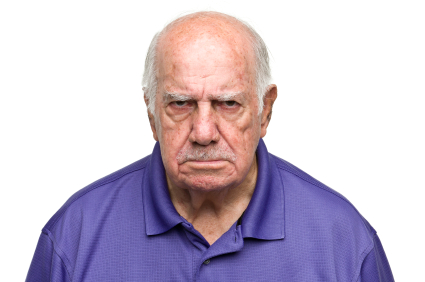
Join Dr. El
Wednesday, March 25th
at 2pm Eastern Time (1pm Central Time)
for a
FREE Webinar on
4 Steps to Preventing Senior Bullying in Long Term Care
sponsored by EmLogis
To register:
About the Webinar:
Senior living communities often experience problems with bullying among residents. Join psychologist Dr. Eleanor Feldman Barbera on March 25th at 1pm central for a FREE WEBINAR as she discusses the importance of addressing bullying and outlines the path to creating an atmosphere that discourages bullying within your community.
What you will learn:
The impact of bullying
The types of behaviors considered bullying
Who is more likely to bully and to be bullied
Interventions to reduce bullying at the individual and organizational levels
Who should attend this webinar:
Administrators and assistant administrators
DONs, ADONs, department heads, nursing supervisors, charge nurses, social workers, and direct care staff
Staff training coordinators
Human resource department staff

Posted by Dr. El - January 21, 2015 - Customer service, End of life, McKnight's Long-Term Care News, Personal Reflections, Resident care
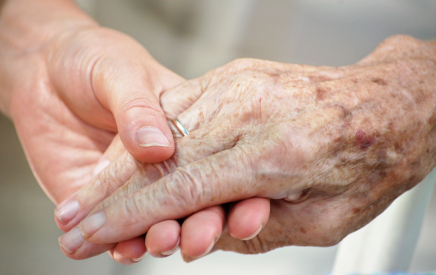
Here’s my latest article on McKnight’s Long-Term Care News:

There are moments in life that engender important questions. When an individual is born, we ask, “Is it a boy or a girl?” When the person dies, we ask, “What happened?” In long-term care, we’re not around for the first question, but we often are for the second.
Though infrequently observed by those not involved with direct care, how someone dies is a very important part of the culture of the long-term care organization.
In “Remembering the Lost,” New Old Age blogger Paula Span reports on the typical experience of loss in LTC, where deaths are often barely acknowledged. She describes two alternative programs that offer a way to recognize individuals who have lived and died in LTC.
In “Better death notifications could improve CNA work experience, study suggests,” McKnight’s notes that how the deaths of residents are communicated to CNAs affects the way they feel about their work. The best way to find out, the study concludes, is to be told prior to beginning a work shift. The hardest way to learn of a death is to arrive at the resident’s room and find it emptied of belongings or filled with a new resident.
A front-line perspective
Like others performing direct care, I’ve had to cope with the loss of residents. I felt sucker-punched by the deaths that occurred early in my LTC career. My youth, inexperience, denial, and lack of training in issues around death made the demise of very ill or very old residents seem sudden and shocking.
I quickly got some training in thanatology (the study of death) and I’ve had many years of experience since then. I learned to protect my heart and love with a little cushion of distance around me.
Echoing the findings of the study referred to above, my worst experience by far was coming in to work to find the room empty of a beloved patient, the bed stripped and raised as high as possible after the mattress had been cleaned. By contrast, once an aide rushed to me the moment I got off the elevator to visit one of my patients, telling me she’d passed the night before. I thanked her profusely, hurried to the bathroom and cried.
My rituals around loss do still occasionally involve crying in the bathroom, but more often since I learned to protect my heart I look upward and say, “Rest in peace, John.” Or Mary. Or Viola. Sometimes I talk with other staff members who were close to the resident. Or I write about the person who died.
Creating better ways to address losses in LTC
My personal rituals were developed in the absence of formal, facility-sanctioned acknowledgement of the deaths of residents. As a shrink, I was aware of the need to get training and to recognize the personal impact of these losses.
I suspect that many new staff members don’t make it past the “sucker-punch” phase of losing residents. Instead, they quit, so that new staff members must be hired and trained. For ideas on how to reduce this likelihood, read Absenteeism and turnover in LTC? Death anxiety could be the cause.
Facilities can improve the experience of death and dying for the residents, staff and family by addressing various aspects of the process such as:
For the entire article, visit:
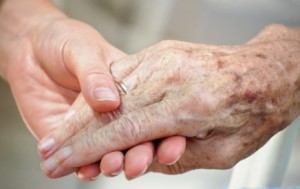
Posted by Dr. El - October 15, 2014 - Business Strategies, Customer service, Resident care, Talks/Radio shows

Tomorrow, 10/16, I’ll be a guest on “When Things Go Wrong,” the Wharton Business Radio show of professor Christian Terwiesch. The live show is 10/16 at 4pm ET and I’ll be on at 4:30pm. Professor Terwiesch will be addressing customer services issues in long-term care. They don’t provide the questions in advance so I have no idea what he’s going to ask me, but I’ll do my best to represent psychology and long-term care while acknowledging the reality of occasional lapses in customer service.
If you want to listen live (or on-demand after the show is over), see below for a link to a 30-day free trial of SiriusXM.
I hope you’ll join us for what promises to be a very interesting discussion!
Here’s the link to a 30-day free trial of SiriusXM: http://www.siriusxm.com/freetrial
The interview will air live on SiriusXM Satellite Radio Channel 111, as well as online at SiriusXM.com. It will also be available on-demand online to SiriusXM subscribers for 30 days after the live broadcast. This trial will allow any non-subscribers to listen live online at SiriusXM.com and via the SiriusXM free mobile app. Business Radio is in the Talk and Entertainment section of the site. Please feel free to pass it along to any colleagues, followers, friends, etc.
If you would like to listen back to recent shows (or the interview afterward), you can do so by following the steps below.
Once you have the trial:
• Go to SiriusXM.com and sign in
• Click ‘Listen Online’ in top right corner
• Click ‘Shows On-Demand’
• Then search for the show by name – When Things Go Wrong
• Click on recent shows to listen

Posted by Dr. El - September 11, 2014 - Books/media of note, Customer service, Inspiration, Resident care

As a psychologist, I have the privilege of hearing the perspective of residents on a regular basis. For those of you who aren’t so lucky, here’s an insightful video by a resident of an assisted living facility. Dick Weinman, retired professor of broadcast communications at Oregon State University, author and former radio personality, provides a moving account of his experiences as a resident.
View below or click on this link: http://youtu.be/UciTFCPCivI

Dick Weinman
Posted by Dr. El - August 7, 2014 - McKnight's Long-Term Care News, Resident care, Resident education/Support groups
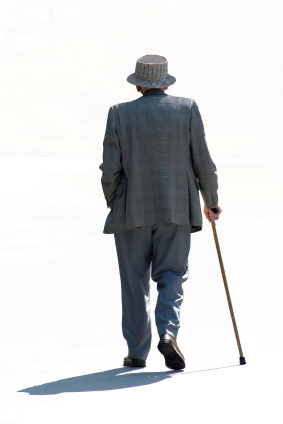
Here’s my latest article on McKnight’s Long-Term Care News:

According to the American Geriatrics Society, one in three adults over the age of 65 falls each year. Falls represent the leading cause of fatal and nonfatal injuries among older adults. You might be surprised to hear some of the contributing factors of falls and the psychology behind them. I also have advice on ways residents and staff can reduce the likelihood of falls.
Factors associated with falling
Falls are caused by many different influences, often in combination. Some common elements (1) include:
- Medication — the major contributors are psychotropics (especially benzodiazepines, antidepressants, and antipsychotics), medications that reduce blood pressure and anticonvulsants
- Polypharmacy — one study found a 14% increase in fall risk with the addition of each medication beyond a four-medication regime, regardless of the group of drugs studied
- Orthostatic hypotension — researchers noted a 69% increased risk of having an injurious fall during the first 45 days following antihypertensive treatment
- Alcohol abuse
- Diabetes mellitus
- Confusion and cognitive impairment
- Gait and balance disorders
- Muscle weakness
- Poor vision
- Urinary incontinence
- Inappropriate footwear
- Environmental factors including home hazards
Impact of falls for residents
Falls can have a huge effect on the quality of life of our elders, who may have diminished mobility following an injurious fall. One-third of those who have fallen develop a fear of falling again and often reduce their activities in order to decrease the likelihood of similar mishaps. For those who have fallen in a facility, staff may limit the resident’s activities. Restricted activities, whether self-imposed or enforced by others, can contribute to depression. As noted above however, prescribing anti-depressants can increase the risk of future falls.
Concealed falls
Due to fear that their independence will be limited, some elders may hide the fact they’ve fallen. Residents have confessed past falls to me in their psychotherapy sessions, saying they were afraid they’d be forced into a wheelchair if anyone knew, or that they wouldn’t be allowed to go home after rehab. Psychotherapy might focus on the toll of untreated injuries due to silence following a harmful fall, whether or not returning home is realistic, or on ways to safely manage the activity that led to the fall.
(1) http://www.patient.co.uk/doctor/prevention-of-falls-in-the-elderly-pro
For the entire article, visit:

Posted by Dr. El - June 12, 2014 - Business Strategies, Communication, Customer service, Engaging with families, McKnight's Long-Term Care News, Motivating staff, Resident care

Here’s my latest article on McKnight’s Long-Term Care News:

At the front desk, the workers were having an argument. Some residents watched the proceedings with interest and others with expressions of alarm. A waiting family member shifted from one leg to another and began sighing with exasperation as the loud conversation wore on without her presence being acknowledged.
We may talk about the term “customer service” and ask our staff members to avoid public arguments like the one above, but nevertheless, similar situations happen every day. Why does it matter so much? Using the model of the family as a guide, I discuss the psychological importance of good customer service in all our interactions.
With other staff members – Just as the relationship between parents forms the foundation of a family, our relationships with our coworkers are the foundation of good customer service.
o As shown in the above example, the residents observe how we treat one another. If our conversations are respectful and collegial, residents feel comfortable discussing concerns because they perceive their caregivers to be levelheaded and understanding. Angry, shaming interactions between staff members create an unsafe environment, making residents less likely to share information — including details that may affect medical care.
o Difficult interactions with coworkers are frequently transmitted to resident care. This is known in psychological terms as displacement. In the classic case, the boss yells at the father, who comes home and yells at his wife, who yells at the kid, who kicks the dog. If the nursing supervisor publicly criticizes the nurse who then chastises the aide, the residents are likely to be on the receiving end of the aide’s aggravation. Alternatively, if the nursing supervisor compliments the nurse who in turn praises the aide, the residents are more like to be met with a cheerful, upbeat caregiver.
o How senior staff members talk to subordinates is passed along to the next level of subordinates, not just through displacement, but also through modeling. Senior staffers are showing through example “how we handle things here.” When an administrator uses “teachable moments” to calmly point out what aspects of a crisis were managed well and what could be done differently for mismanaged parts, this becomes its own teachable moment in terms of how to provide constructive feedback.
For the entire article, visit:

Posted by Dr. El - May 15, 2014 - Customer service, Depression/Mental illness/Substance Abuse, McKnight's Long-Term Care News, Medication issues, Resident care
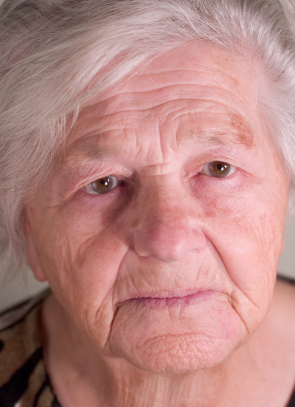
Here’s my latest article on McKnight’s Long-Term Care News:

“My mother was kicked out of her nursing home again,” my cousin told me. “They said they couldn’t handle her.” I phoned Cousin Belle’s new number in the afternoon.
“They didn’t give me my pain medication,” she said angrily. “They took away my walker and I need to use the bathroom. CAN SOMEBODY GET ME MY WALKER – I NEED TO USE THE BATHROOM!” She began sobbing. I heard another voice. “Did you hear what the man next to me just said?…You’re not a man?.. .I’m sorry, I can’t see…” Belle lost her vision several years ago, just like her father before her. “I helped people all my life,” she told her companion. Belle is a retired nurse.
She shouted again and I heard a staff member say, “Have some respect for the other residents.” Belle responded immediately, “Have some respect for me!”
“Let’s say the ‘Serenity Prayer,’” I suggested. “OK, let’s,” Belle agreed immediately. When we finished, she asked to say it again. She sounded calmer. “The woman next to me said it with me,” she remarked.
That story is about Cousin Belle, but it’s also the story of Gerry, Anna and a host of other residents I’ve seen over the years. Below are some suggestions for handling these challenging residents, coming from my perspective as a psychologist. I know there are many educated, experienced and compassionate people from other disciplines who will read this. If you have any additional tips, please add them in the comments section.
- Start afresh: If the current staff members are burned out and no longer responding well to the resident, it can be helpful to move the resident to a new unit or facility with a clean slate and fresh expectations. Notify the new team in advance so that they can prepare for the anxious resident and avoid repeating the same situation.
- Keep in close contact with the psychiatrist: The very anxious resident is likely to need medication for anxiety or depression, or at least to know that something is available if necessary. The early, frequent and regular attendance of the psychiatrist can reassure the resident and the team that an expert presence is guiding care.
- Give meds quickly: If residents are in pain or on a medication upon which they’ve become dependent, give the medication as soon as possible. Waiting will only increase their agitation and disturb other residents.
- Mollycoddle: A loud and anxious resident is likely to become louder and more anxious the longer they have to wait for their demands to be met. Just like with the medication, attend to their needs as soon as possible. Anxious people tend to be anxious because they feel out of control. Meeting their needs helps them feel more in control.
- Assign your most patient and compassionate aides: Satisfying a very anxious resident’s demands can be a never-ending task. Try to assign the type of person who will approach each call for assistance with a pleasant demeanor and not those who will let their displeasure be known with an unkind word or expression.
For the entire article, visit:
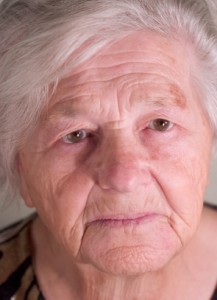
Posted by Dr. El - April 21, 2014 - Business Strategies, Customer service, Depression/Mental illness/Substance Abuse, Resident care, Talks/Radio shows, Younger residents

Join Dr. El this Thursday in Connecticut!
The Connecticut Association of Health Care Facilities
is sponsoring a talk on
Meeting the Needs of Younger Residents
Thursday, April 24th, 2014 at 9am
at the Crowne Plaza Hotel in Cromwell, CT
For more information and to register: CAHCF.org

Posted by Dr. El - April 17, 2014 - Depression/Mental illness/Substance Abuse, McKnight's Long-Term Care News, Psychology Research Translated, Resident care

Here’s my latest article on McKnight’s Long-Term Care News:

Research shows that the rate of depression among elders in senior residences is 24% to 27%. It’s not that every fourth resident you greet in the hallway is depressed.
It’s that we should be more concerned about the people who aren’t in the hallway to greet.
“Depressive symptoms are expected to become a leading cause of the global burden of disease, second only to cardiovascular disease, by the year 2020,” according to Tracy Chippendale, PhD, OTR/L in her 2013 Clinical Gerontologist study.”
Depressed residents are less independent in their activities of daily living, have a decreased quality of life, and tend to use more medical services than peers who aren’t depressed.
Factors reducing depression
According to Chippendale, elders with more education, better self-rated health and more social support are less likely to be depressed. While we can’t necessarily change a person’s health or the level of education they’ve achieved, as senior care providers we can certainly offer opportunities for social support.
An important component of social support — beyond the number of connections in a person’s life — is how much the individual feels valued by others. For a retired elder who has completed raising her children and lost the value of a job and its contacts and income, mattering to others can come from family relationships, friendships, community service, and owning a pet, for example. Studies suggest that moving to a senior residence can reduce some of these opportunities to connect and to be of service.
Creating opportunities to ‘matter’
For the entire article, visit:





















